
Early Life
Eyhab Elbira describes himself as a young man who values change, has gained valuable experience, and strives for success.
His upbringing was certainly not an easy one. Born into a middle-class family in the city of Misrata on July 21, 1976, he had to face the challenges of life from a very young age. Being the only male child in the family, he felt a sense of responsibility from an early age. His father passed away when he was just one year old, leaving his mother to take care of him and his siblings.
Mr. Elbira’s family is well known in their city due to his father’s reputation as a kind and selfless volunteer. This has undoubtedly had a significant impact on Mr. Elbira, who has grown up with a strong sense of altruism and a desire to help others. It is worth mentioning that despite the family’s financial struggles, they have managed to maintain their reputation in the community. Mr. Elbira has undoubtedly inherited his father’s good name and continues to uphold the family’s legacy.
Overall, Mr. Elbira’s life story is one of resilience, perseverance, and compassion. Despite the challenges he has faced, he has emerged as a responsible and kind-hearted individual, dedicated to making a positive impact on the world around him.

Early Life
Eyhab Elbira describes himself as a young man who values change, has gained valuable experience, and strives for success.
His upbringing was certainly not an easy one. Born into a humble family in the city of Misrata on July 21, 1976, he had to face the challenges of life from a very young age. Being the only male child in the family, he felt a sense of responsibility from an early age. His father passed away when he was just one year old, leaving his mother to take care of him and his siblings.
Mr. Elbira's family is well known in their city due to his father's reputation as a kind and selfless volunteer. This has undoubtedly had a significant impact on Mr. Elbira, who has grown up with a strong sense of altruism and a desire to help others. It is worth mentioning that despite the family's financial struggles, they have managed to maintain their reputation in the community. Mr. Elbira has undoubtedly inherited his father's good name and continues to uphold the family's legacy.
Overall, Mr. Elbira's life story is one of resilience, perseverance, and compassion. Despite the challenges he has faced, he has emerged as a responsible and kind-hearted individual, dedicated to making a positive impact on the world around him.
Education
Elbira has an impressive educational background, including a Ph.D. in Economic Sciences from Mega-Trend University Belgrade, obtained in 2023. Prior to this, they earned a Master’s degree in Economics from the same institution in 2019. Furthermore, he received a Bachelor’s degree in Medical Technology from Nasser University in Misrata in 1999. With such a diverse educational background, he is well-equipped to excel in a variety of fields and industries.
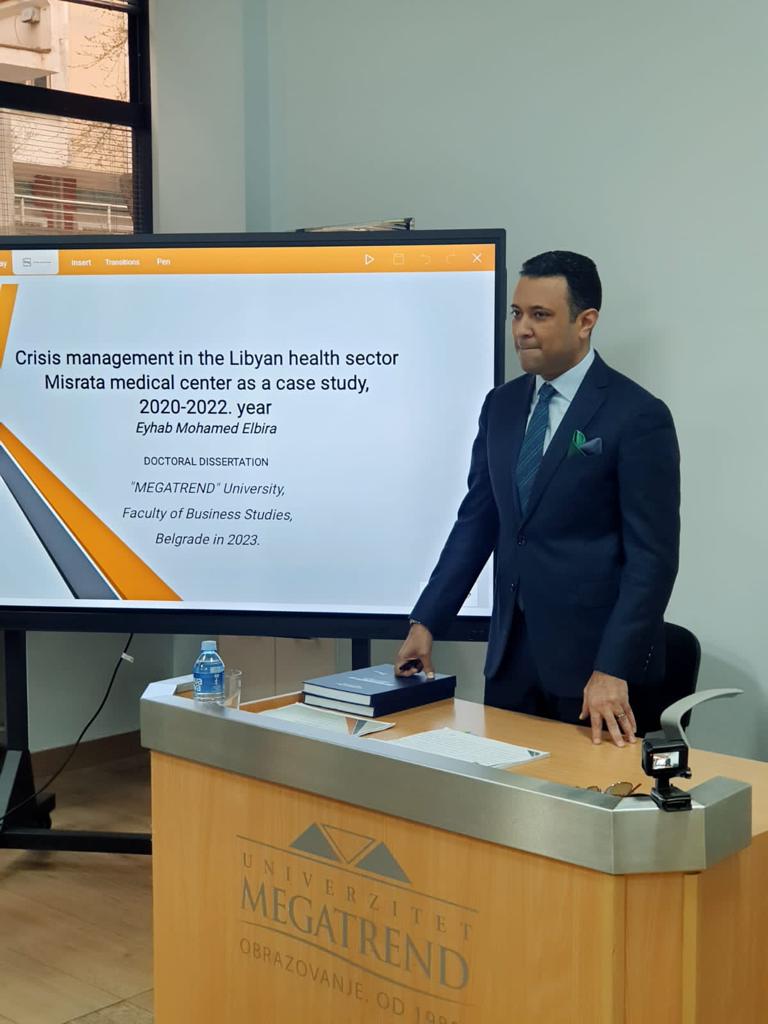
Education
Elbira has an impressive educational background, including a Ph.D. in Economic Sciences from Mega-Trend University Belgrade, obtained in 2023. Prior to this, they earned a Master's degree in Economics from the same institution in 2019. Furthermore, he received a Bachelor's degree in Medical Technology from Nasser University in Misrata in 1999. With such a diverse educational background, he is well-equipped to excel in a variety of fields and industries.

Career
Mr. Elbira has had an extensive professional career spanning over two decades. One year after his appointment at Misrata’s Education Department, he became the Head of the Personnel Affairs Department in October 2000. Over the years, he held various positions of responsibility, such as the Head of the Administrative Affairs Department in the Misrata Education Sector in March 2002 and the Manager of Scholarship and Training in the same sector in April 2006.
In June 2007, Mr Elbira became the Branch Manager of Misrata Educational Aids Authority, and two years later, in September 2009, he founded and became the Director of the United Company for Inspection, Conformity, and Services. In March 2011, he became a founding member and Vice Chairman of the Imdad Organization for Charitable Works Board of Directors.
In 2013, he founded and became the owner of FM Radio Al-Mead. In 2018, he joined the Management Committee of Al-Swehli Sports Club. From 2020 to 2022, he served as the General Director of the Misrata Medical Center.
In 2020, Elbira became a member of the Corona Pandemic Committee in the Municipality of Misrata. The following year, he chaired the committee supervising the follow-up of the implementation of the Libyan-Turkish agreement signed between both ministries of health. He also became the Head of the National Campaign for Vaccinations and the Chairman of the National Committee for the Localization of Inland Treatment in the Misrata Medical Center in 2021.
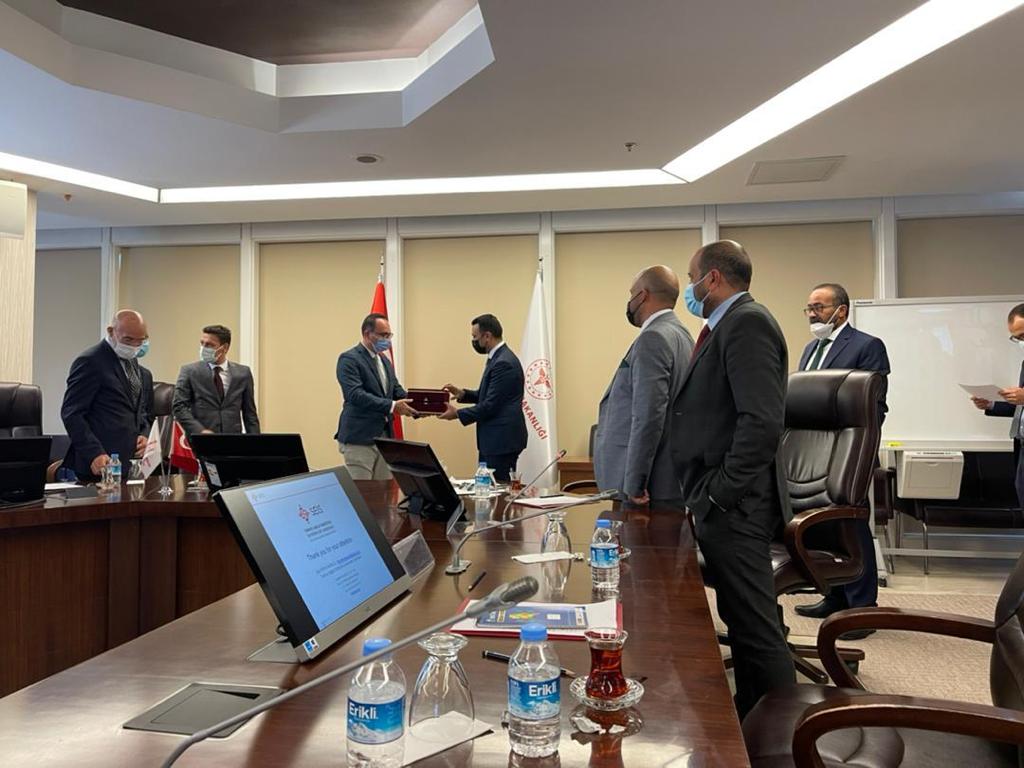
Career
Mr. Elbira has had an extensive professional career spanning over two decades. One year after his appointment at Misrata’s Education Department, he became the Head of the Personnel Affairs Department in October 2000. Over the years, he held various positions of responsibility, such as the Head of the Administrative Affairs Department in the Misrata Education Sector in March 2002 and the Manager of Scholarship and Training in the same sector in April 2006.
In June 2007, Mr Elbira became the Branch Manager of Misrata Educational Aids Authority, and two years later, in September 2009, he founded and became the Director of the United Company for Inspection, Conformity, and Services. In March 2011, he became a founding member and Vice Chairman of the Imdad Organization for Charitable Works Board of Directors.
In 2013, he founded and became the owner of FM Radio Al-Mead. In 2018, he joined the Management Committee of Al-Swehli Sports Club. From 2020 to 2022, he served as the General Director of the Misrata Medical Center.
In 2020, Elbira became a member of the Corona Pandemic Committee in the Municipality of Misrata. The following year, he chaired the committee supervising the follow-up of the implementation of the Libyan-Turkish agreement signed between both ministries of health. He also became the Head of the National Campaign for Vaccinations and the Chairman of the National Committee for the Localization of Inland Treatment in the Misrata Medical Center in 2021.

Motivation into politics
Mr. Elbira argues that in the aftermath of the 2011 revolution, the people of Libya had great expectations that rational and reasonable individuals would take the reins of power and usher in a new era of progress and development. However, it didn’t take long for them to realize they lacked the political maturity and expertise to bring about meaningful change. Elbira believes that in order to make a difference in any political system, one must possess influence, either by being a member of a political party or by creating one to gain power. While his initial plan was to run for a parliamentary seat, he soon realized that establishing a political party was the key to making a lasting impact across various sectors. His ultimate objective is to bring about positive change, but he understands that this can only be achieved through a rigorous and sustained political process.
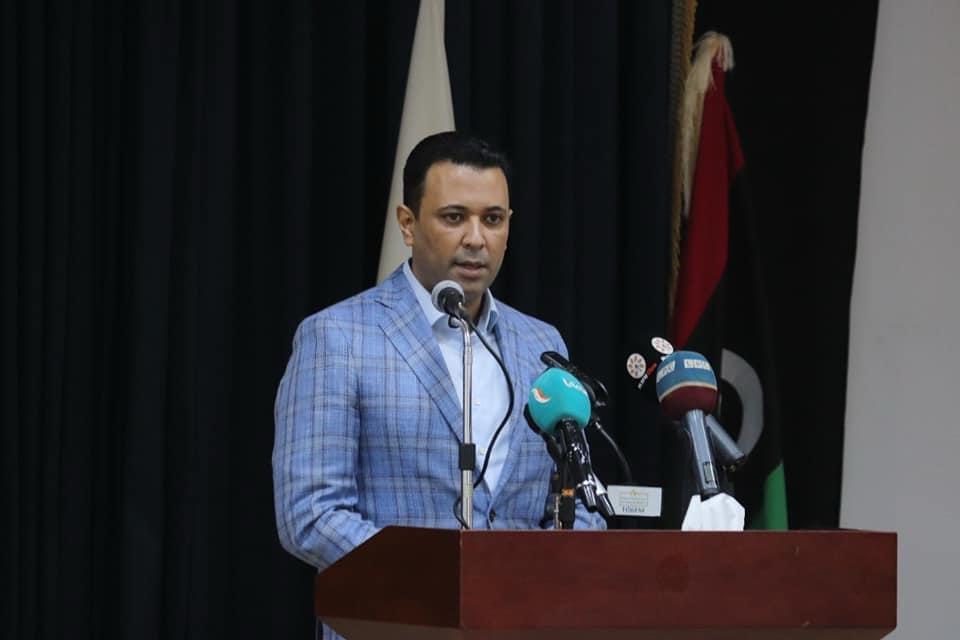
Motivation into politics
Mr. Elbira argues that in the aftermath of the 2011 revolution, the people of Libya had great expectations that rational and reasonable individuals would take the reins of power and usher in a new era of progress and development. However, it didn't take long for them to realize they lacked the political maturity and expertise to bring about meaningful change. Elbira believes that in order to make a difference in any political system, one must possess influence, either by being a member of a political party or by creating one to gain power. While his initial plan was to run for a parliamentary seat, he soon realized that establishing a political party was the key to making a lasting impact across various sectors. His ultimate objective is to bring about positive change, but he understands that this can only be achieved through a rigorous and sustained political process.

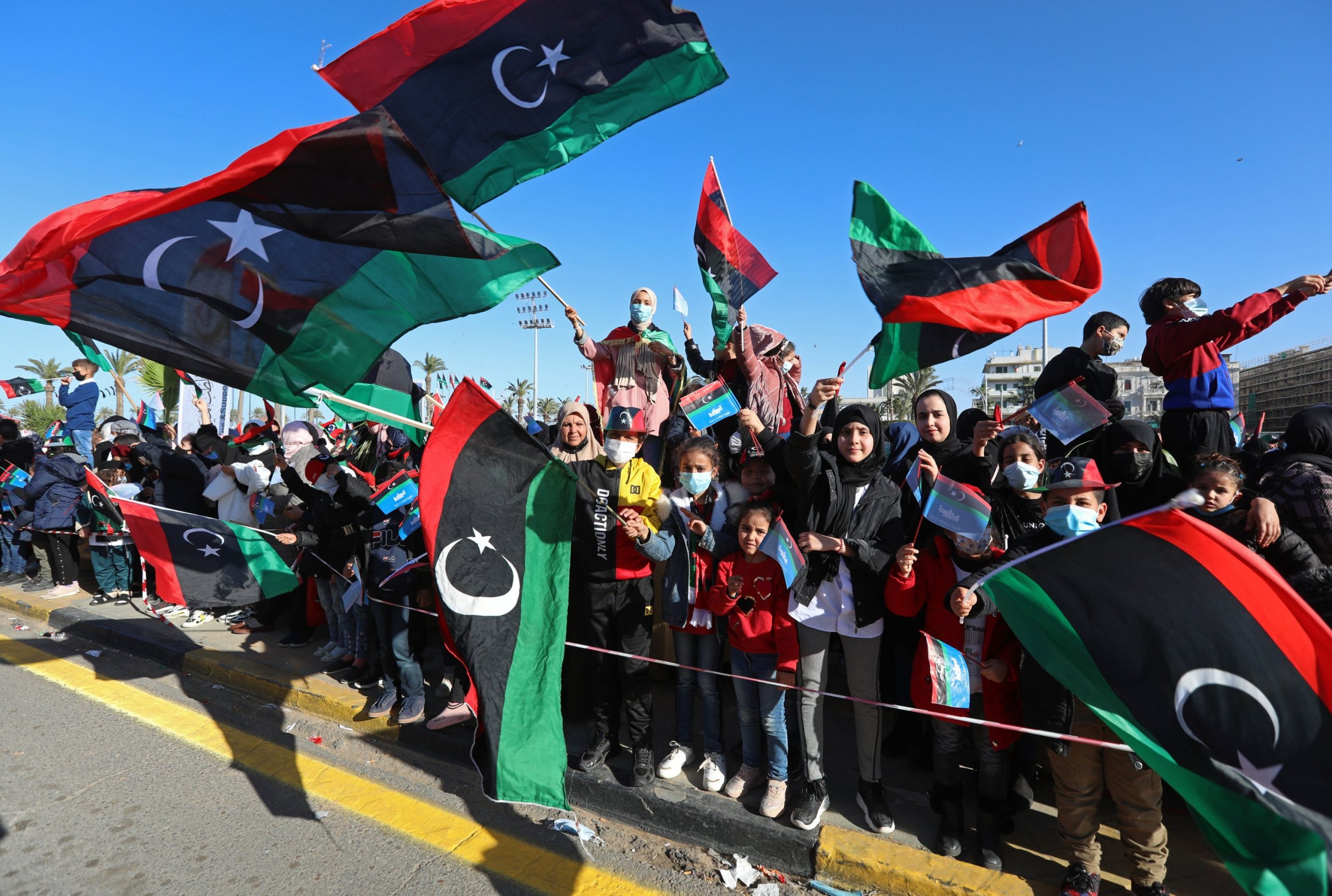
His thoughts on Libya’s political crisis
Elbira is deeply concerned about the ongoing political crisis in Libya since 2011 and firmly believes that the Libyans themselves hold the key to resolving this crisis. He believes that the Libyan people have a history of reconciling after major crises and that a solid foundation, such as a code of conduct, must be established. According to Elbira, the solution to the Libyan crisis lies in the equal distribution of wealth among all Libyans. Elbira argues that the power struggle among various factions is the root cause of the country’s woes and that decentralization could provide a viable solution to these problems. In his view, decentralization, which involves allowing municipalities to run their local affairs, will not only address the issue of access to wealth but also help to address the security crisis that Libya is facing.
His thoughts on Libya’s political crisis
Elbira is deeply concerned about the ongoing political crisis in Libya since 2011 and firmly believes that the Libyans themselves hold the key to resolving this crisis. He believes that the Libyan people have a history of reconciling after major crises and that a solid foundation, such as a code of conduct, must be established. According to Elbira, the solution to the Libyan crisis lies in the equal distribution of wealth among all Libyans. Elbira argues that the power struggle among various factions is the root cause of the country's woes and that decentralization could provide a viable solution to these problems. In his view, decentralization, which involves allowing municipalities to run their local affairs, will not only address the issue of access to wealth but also help to address the security crisis that Libya is facing.

Foreign policy
As per Elbira’s analysis, the current situation prevailing in Libya has resulted in the formation of fragile relationships with other countries that are more personal than institutionalized. In his opinion, the Ministry of Foreign Affairs does not truly represent the views of the Libyan citizens. This has led to a lack of a unified vision, even amongst our ambassadors. Consequently, the international community does not take us seriously.
To tackle the issues of illegal migration and terrorism, Libya needs to establish strong relationships with the rest of the world, including the European Union. However, these relationships should be built on the foundation of partnerships and mutual collaboration rather than subservience. We must aim for a win-win situation with the EU or any other countries. Moreover, we need to recover the frozen assets in Europe by leveraging our relationships with them. Therefore, it is imperative that strenuous efforts are made towards building strong alliances with other countries, with a clear and unified vision that represents the interests of the Libyan people.
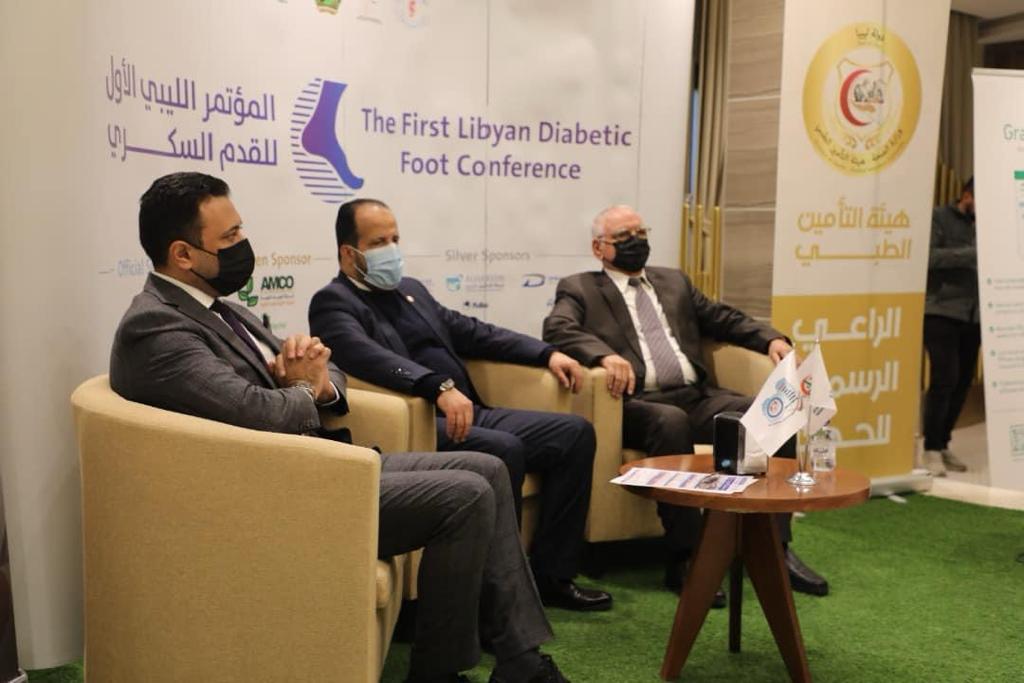
Foreign policy
As per Elbira's analysis, the current situation prevailing in Libya has resulted in the formation of fragile relationships with other countries that are more personal than institutionalized. In his opinion, the Ministry of Foreign Affairs does not truly represent the views of the Libyan citizens. This has led to a lack of a unified vision, even amongst our ambassadors. Consequently, the international community does not take us seriously.
To tackle the issues of illegal migration and terrorism, Libya needs to establish strong relationships with the rest of the world, including the European Union. However, these relationships should be built on the foundation of partnerships and mutual collaboration rather than subservience. We must aim for a win-win situation with the EU or any other countries. Moreover, we need to recover the frozen assets in Europe by leveraging our relationships with them. Therefore, it is imperative that strenuous efforts are made towards building strong alliances with other countries, with a clear and unified vision that represents the interests of the Libyan people.

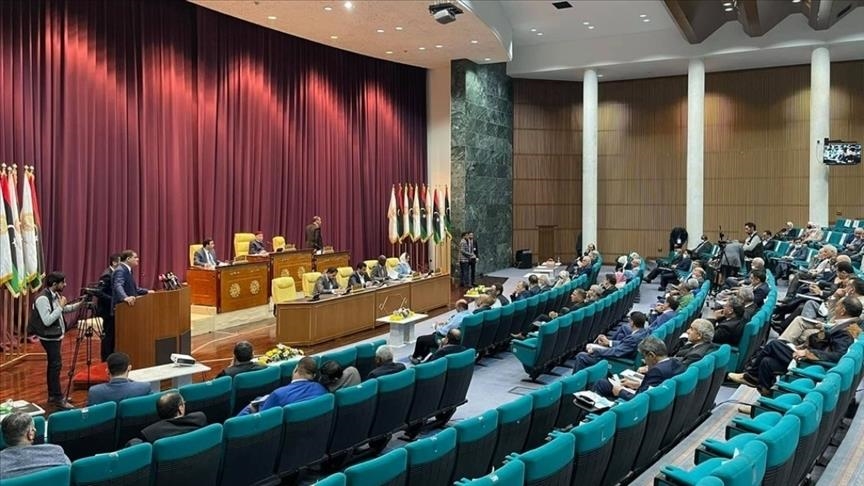
National unity
Achieving unity, peace, and stability in Libya’s political crisis is a complex and challenging task. It requires a multifaceted approach that involves various stakeholders, including the government, opposition groups, civil society organizations, and international partners. One of the critical steps towards achieving this goal is to promote dialogue and reconciliation among the different parties involved. This can be facilitated through mediation and conflict resolution techniques that aim to build trust and foster cooperation. Additionally, efforts should be made to address the root causes of the conflict, such as economic disparities, political exclusion, and historical grievances. By working together towards a common goal, we can create a more peaceful and prosperous future for the people of Libya.
National unity
Achieving unity, peace, and stability in Libya's political crisis is a complex and challenging task. It requires a multifaceted approach that involves various stakeholders, including the government, opposition groups, civil society organizations, and international partners. One of the critical steps towards achieving this goal is to promote dialogue and reconciliation among the different parties involved. This can be facilitated through mediation and conflict resolution techniques that aim to build trust and foster cooperation. Additionally, efforts should be made to address the root causes of the conflict, such as economic disparities, political exclusion, and historical grievances. By working together towards a common goal, we can create a more peaceful and prosperous future for the people of Libya.

Economy
Libya is facing numerous challenges that require immediate attention. To address these issues, there is a need to focus on rehabilitating the local labor force, supporting small and medium enterprises, and providing loans to individuals who wish to engage in private sector activities. By doing so, people can become self-reliant and less dependent on the government for salaries. It's important to note that relying on a salary means working for someone else, and we encourage individuals to manage their own enterprises.
To support the private sector, relevant legislation is required that can address the intertwined issues. Legislative solutions are necessary, and the parliament must make necessary amendments to execute certain plans. Furthermore, there is a need to attract foreign investments in Libya to boost economic growth. With a coastline of 1900 km east of the Mediterranean, one of the most magnificent coastlines in the world, Libya has the potential to attract investors from all over the world. Creating more job opportunities will enable people to become self-reliant and ease the burden on the State.
In addition, laws should be implemented to protect investors and ensure that they have the necessary support to establish their businesses. This will create a favorable business environment that will encourage more foreign investments, which will ultimately lead to economic growth. Overall, we need to work together to create a sustainable business environment that fosters growth and development in Libya.
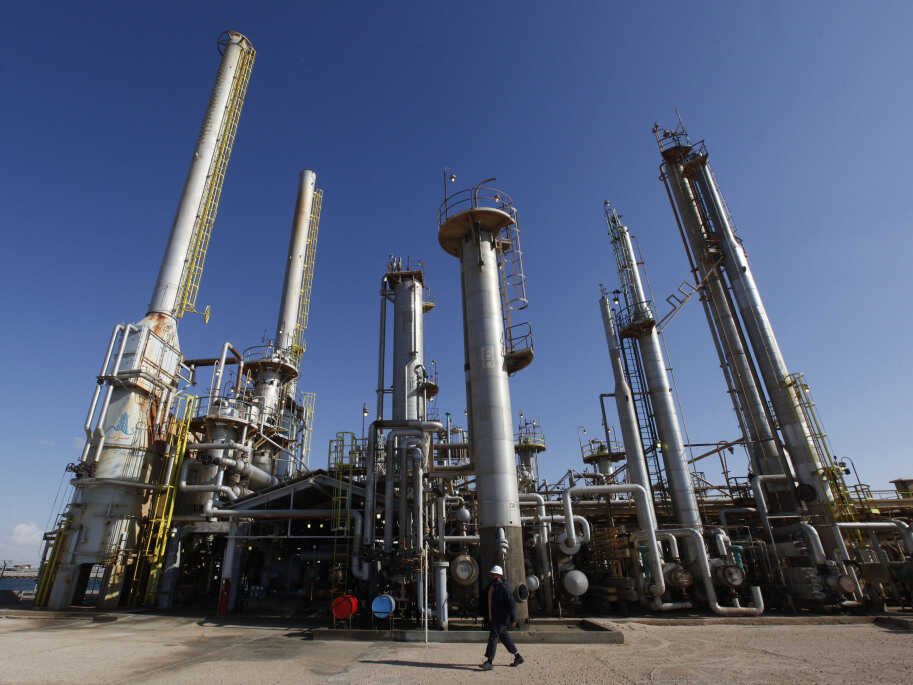
Economy
Libya is facing numerous challenges that require immediate attention. To address these issues, there is a need to focus on rehabilitating the local labor force, supporting small and medium enterprises, and providing loans to individuals who wish to engage in private sector activities. By doing so, people can become self-reliant and less dependent on the government for salaries. It’s important to note that relying on a salary means working for someone else, and we encourage individuals to manage their own enterprises.
To support the private sector, relevant legislation is required that can address the intertwined issues. Legislative solutions are necessary, and the parliament must make necessary amendments to execute certain plans. Furthermore, there is a need to attract foreign investments in Libya to boost economic growth. With a coastline of 1900 km east of the Mediterranean, one of the most magnificent coastlines in the world, Libya has the potential to attract investors from all over the world. Creating more job opportunities will enable people to become self-reliant and ease the burden on the State.
In addition, laws should be implemented to protect investors and ensure that they have the necessary support to establish their businesses. This will create a favorable business environment that will encourage more foreign investments, which will ultimately lead to economic growth. Overall, we need to work together to create a sustainable business environment that fosters growth and development in Libya.

